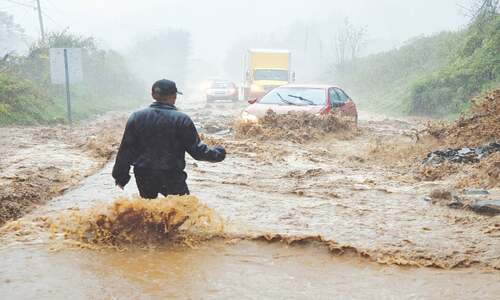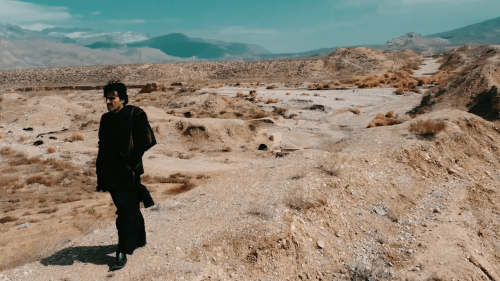RIYADH: After years of failing to secure a visa, Yasser finally concluded he had no choice but to perform Haj illegally, a move he now regrets.
While he survived the rites in extreme heat, he has not seen his wife since Sunday and fears she is among the more than 1,000 reported fatalities — the majority unregistered Egyptians like himself.
“I have searched every single hospital in Makkah. She’s not there,” the 60-year-old retired engineer said on Friday by phone from his hotel room, where he is reluctant to pack his wife’s suitcase in hopes she will return to do it herself.
“I don’t want to believe in this possibility that she’s dead. Because if she’s dead, it’s the end of her life and also the end of my life.”
Egypt accounts for more than half of this year’s Haj fatalities — 658 out of more than 1,000 reported as of Friday by around 10 countries stretching from Senegal to Indonesia.
An Arab diplomat said 630 of those 658 dead Egyptians were unregistered, meaning they could not rely on access to amenities that make the Haj more bearable.
That included air-conditioned tents meant to offer some relief as temperatures soared to as high as 51.8 degrees Celsius at the Grand Mosque in Makkah.
In the first Saudi comment on the deaths, a senior official said 577 people died on the Haj’s two main days on Saturday and Sunday, and that an overall toll was still being compiled.
“The state did not fail, but there was a misjudgement on the part of people who did not appreciate the risks,” the official said.
Off-the-books fees
Official Haj permits are allocated to countries through a quota system and distributed to individuals via a lottery.
Even for those who can obtain them, the steep costs make the irregular route, which costs thousands of dollars less, more attractive.
That is especially true since 2019 when Saudi Arabia began issuing general tourist visas, making it easier to travel to the country.
But for Yasser, who declined to be identified by his full name because he is still in Saudi Arabia, the complications from being unregistered became clear as soon as he reached the country last month.
Well before Haj began a week ago, some shops and restaurants refused service to visitors who could not show permits on the official app, known as Nusuk.
Once the long days of walking and praying beneath the blazing sun got underway, he could not access official Haj buses, the only transportation around the holy sites, without paying exorbitant, off-the-book fees.
When heat drove him to exhaustion, he sought urgent care at a hospital in Mina, but was turned away, he said, again for lack of a permit.
As their conditions worsened, Yasser and his wife Safaa lost each other in the crowds during the “stoning of the devil” in Mina.
Since then Yasser has repeatedly postponed their return flight home, hoping she will turn up. “I will keep postponing it until I find her,” he said.
Alarming sights
Other unregistered Egyptian pilgrims described similar hardships — and similarly alarming sights as the heat’s toll mounted.
“There were dead bodies on the ground” in Arafat, Mina and on the way to Makkah, said Mohammed, 31, an Egyptian who lives in Saudi Arabia and who performed Haj this year with his 56-year-old mother.
“I saw people suddenly collapse and die from exhaustion.”
Another Egyptian whose mother died on the route, said it was impossible to get her mother an ambulance.
An emergency vehicle only materialised after her mother was dead, taking the body to an unknown location.
“Until now my cousins in Makkah are still searching for the body of my mom,” she said. “Don’t we have the right to get a last look at her before she is buried?”
Published in Dawn, June 22nd, 2024













































Dear visitor, the comments section is undergoing an overhaul and will return soon.